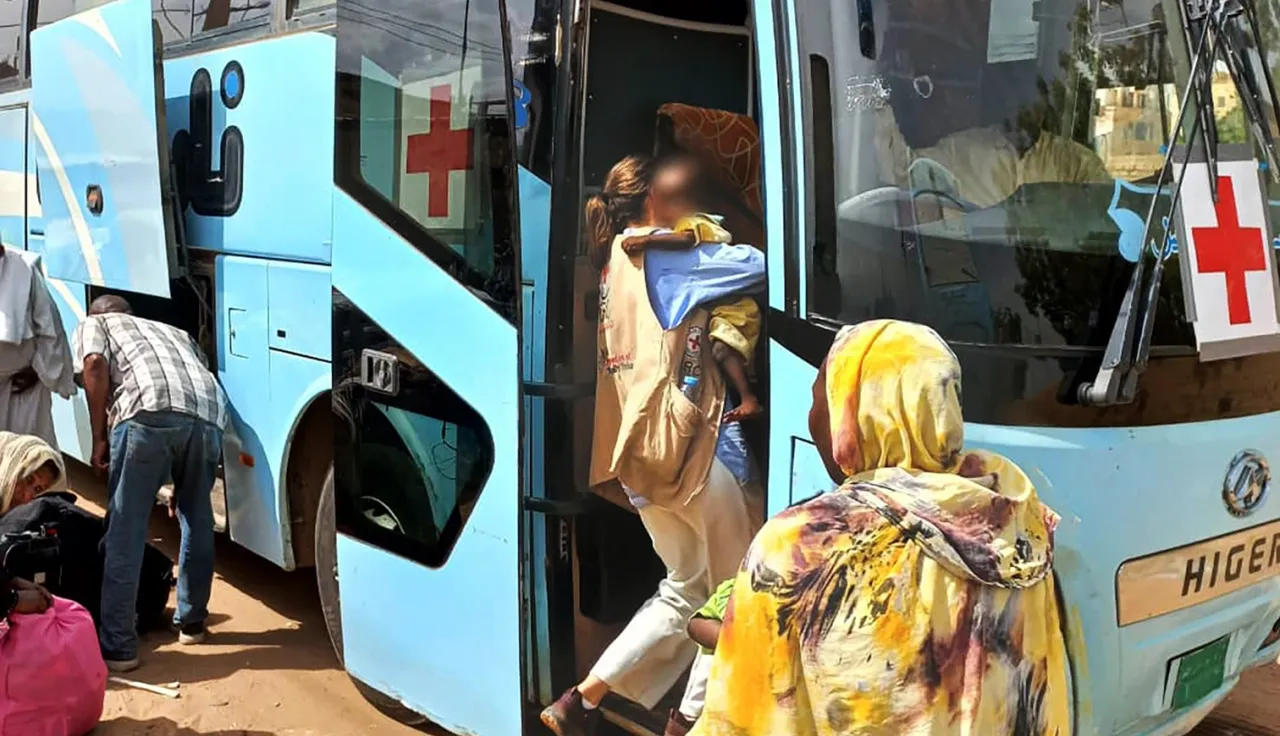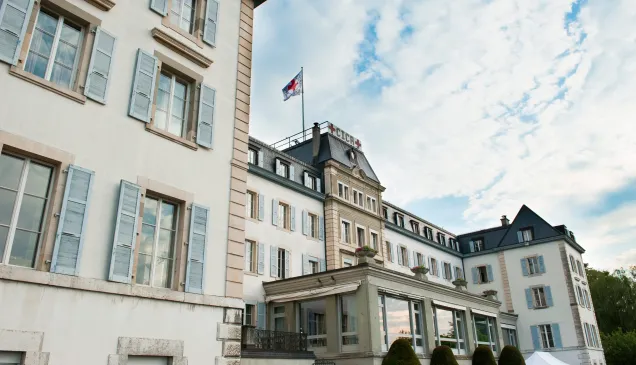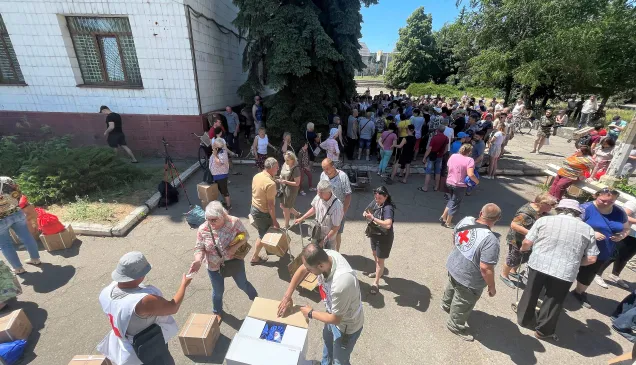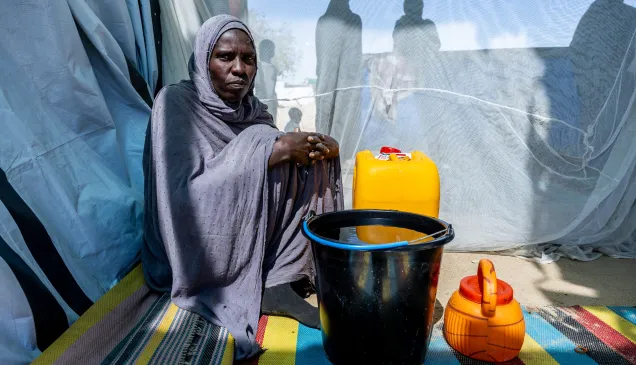Director General of ICRC urges principled humanitarian action as a path to peace amidst global conflicts

Amidst the complexities of an ever-changing global landscape, Robert Mardini, Director General of the International Committee of the Red Cross, delivered a speech at the Austrian Centre for Peace, delving into the pressing questions surrounding the future of peace. As armed conflict continues to rage in Ukraine and many other countries around the world, Mardini emphasized the vital role of principled humanitarian action in alleviating suffering and striving for sustainable peace.
Excellencies, ladies and gentlemen, it is an honour and a pleasure to address this distinguished audience – I'd like to thank the Austrian Centre for Peace for the invitation.
Questions around the future of peace are as vast as they are timely. Almost one and half years into a major international armed conflict between Russia and Ukraine that continues to shake the world, such existential questions rightly concern all of us.
Humanitarian aid, obviously, can never be a substitute for durable political and economic solutions. We are neither peacemakers nor politicians. Yet principled humanitarian action does have a crucial role to play – not only in alleviating suffering, but also in helping to pave the way towards sustainable peace – in armed conflicts everywhere.
The International Committee of the Red Cross (ICRC) was created 160 years ago – not to concern itself with why wars are fought, but rather with how they are fought. Mandated by the Geneva Conventions, our mission has always been to alleviate the suffering of people affected by armed conflict or other situations of violence – and, as far as possible, help to prevent such suffering from happening at all. And that means helping people on both sides of frontlines – with a neutral, impartial and independent humanitarian approach.
Fast forward to 2023. The nature of warfare – and the entire humanitarian landscape – has changed unrecognisably. Armed conflicts are increasingly complex, and often go on for decades.There are more than 100 currently going on around the world. They are also more fragmented and more urbanised.Sometimes it is hard even to identify the parties, never mind engage with them on their obligations to protect civilians.
Just as diverse are the methods and means of warfare used. The use of highly explosive weapons in urban areas is a major concern.The growing risks posed by autonomous weapons systems that are unpredictable or designed to target humans is another.
The suffering all this causes, mainly for civilians, is immense. The devastation we have witnessed over the years in cities such as Aleppo, Gaza, Mosul, or Mariupol, for example, will have consequences lasting for generations. Beyond catastrophic loss of life, livelihoods, infrastructure and services, there is also the long-term mental trauma.
Add to that what we might call the "Ukraine effect," with all the geopolitical, financial and socioeconomic disruption the armed conflict is causing globally. Places like Afghanistan, Ethiopia, Somalia and Yemen – already worn down by years of conflict, climate change and Covid-19 - are all disproportionately feeling the effects of soaring energy and food prices, record levels of inflation and worsening food insecurity. And many have now fallen even further below the international radar – including in terms of donor funding.
While humanitarian needs are increasing globally, so too are the constraints on humanitarian organisations to respond effectively. Alongside what we might call a blatant "nationalisation" of overseas aid by some States and the further erosion of multilateralism, humanitarian aid budgets are shrinking dramatically. The politicisation and manipulation of aid is an ongoing, huge challenge.
And this is happening against a worrying backdrop of misinformation, disinformation, hate speech and increasingly fierce power competition, fuelling tensions with potential to spark further conflict and violence. Conflict will continue to expand more into the digital and even outer space - with cyber-attacks on the rise, making critical civilian infrastructure and services even more vulnerable.
So, overall, the ICRC has seen a vastly changed humanitarian landscape in its time. But some things have remained constant.
The relevance of international humanitarian law (IHL) – and with it, the role of principled humanitarian action, may often be misunderstood and maligned today. "You are either with us, or against us" is a common refrain. Yet IHL and the fundamental principles are the bedrock of our humanitarian action – and we firmly believe they are more important than ever in today's turbulent global landscape.
While the ICRC is not focused on peace-building or peace-making as such, the way we work – engaging in dialogue with all parties to conflict – can help build trust and confidence, and ultimately create opportunities for peace. The services and systems we support and strengthen over years – systems of protection, water, health, food security, detention and family links – may also be valuable resources in this regard. Maintaining infrastructure and social systems with national and opposition authorities effectively prioritizes respect for law, rights and responsibility.
To give a few examples, in the Russia-Ukraine armed conflict, we have visited hundreds of prisoners of war on both sides (and we continue to push for access to all of them). This work is possible only because of our commitment and adherence to neutrality — seeking a constructive dialogue with all the parties that can improve the situation of victims of armed conflicts.
The same approach allowed us to continue our operations in Ethiopia during the conflict in Tigray, where we managed to provide vital support to healthcare facilities. In Syria, it means we have been able to deliver food and medicine to desperate communities for over a decade. In April, our teams transported nearly 1,000 detainees from all sides of the Yemen conflict back home.
Our work regularly entails coordinating with parties – on both sides – to negotiate safe passage for civilians, as we did last year in Ukraine and in Sudan just recently, when we facilitated the evacuation of almost 300 orphans and their carers to a safe location outside Khartoum.
Our approach enables us to facilitate the exchange of remains of fallen combatants, as we long did in Afghanistan. And it allows us to share news with family members separated by violence as we do in places like South Sudan and Colombia.
I'd like to end with one simple message: the single most effective way to reduce suffering in war is to uphold the fundamental principle of humanity. And the most important tool for achieving this is international humanitarian law, which is designed to respect and preserve life and dignity even in the worst circumstances. Primary responsibility for respecting IHL – and ensuring respect – falls to States.The ICRC can only urge them to live up to this responsibility – while working to protect and assist affected people on both sides of frontlines, everywhere.
This is in itself may not guarantee peace, but it can certainly help pave the way.
Thank you.



